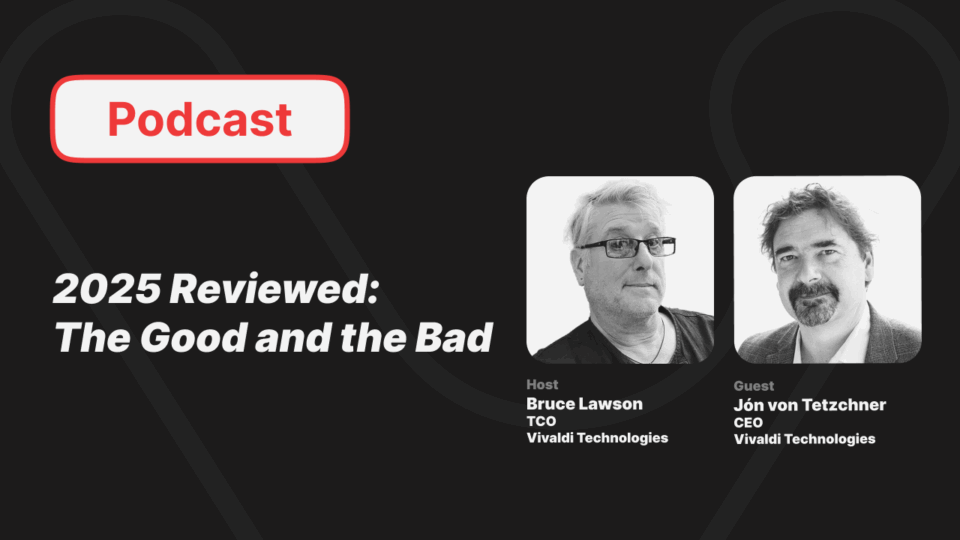
Read this article in 日本語.
At Vivaldi, we believe the only currently viable funding model for the open web is advertising. At the same time we believe there is a problem on the Web with too much tracking. We also strongly believe in user choice. That’s why Vivaldi’s built-in blocking tool has three levels: no blocking, block trackers (but allow ads), and block trackers and ads. Our goal was to block trackers that follow you around the web snooping, while allowing you to make exceptions for sites that you want to support and help support Vivaldi, if you intentionally clicked an ad you were interested in.
However, we recently found out from our search partners that revenue was unusually low, because the tracker blocker was preventing ad attribution. As the ad markets have changed drastically in recent years, seeing and clicking an ad is no longer sufficient. Ad attribution is needed for us to be paid by our partners. We’re now trying out a fix to see if it will work as originally intended. With this fix ads are only attributed when you intentionally click an ad. This fix will only be tested in our Snapshot builds for now, so if you use Vivaldi Stable you won’t see anything about ad attribution.
How does this work practically? If you click an ad in the search result of our search partners (StartPage, Ecosia, DDG, Qwant, Yahoo), we will enable ad attribution for the landing page of the ad, with the intent of ad attribution working. If you do not click an ad, ad attribution does not happen. If you would rather not see ads at all on our partner sites, and thus no ad attribution, do the following:
For desktop:
- Open Settings > Privacy and Security > Tracker and Ad Blocking
- Click “Block Trackers and Ads”
- Click “Manage Sources”
- In “Ad Blocking Sources”, uncheck “Allow ads from our partners”
For Android:
- From the Vivaldi menu, open Settings
- Select “Tracker and Ad Blocking”
- Select “Manage Ad Blocking Sources”
- Uncheck “Allow ads from our partners”
Ad attribution is not currently implemented on iOS. However, we still display ads on partner search engines. You may disable it using the same steps as for Android.
Vivaldi is not directly ad-supported, but we are indirectly, as we get paid by search providers that show ads. If they get no revenue, we get no revenue. Unlike other browsers, we have no intention of tracking what you do in the browser. That’s why we believe ad attribution is the most viable model available. If you want to understand exactly how ad attribution works, Julien, our engineer in charge of content blocking, describes it in technical detail in an accompanying blog post.


